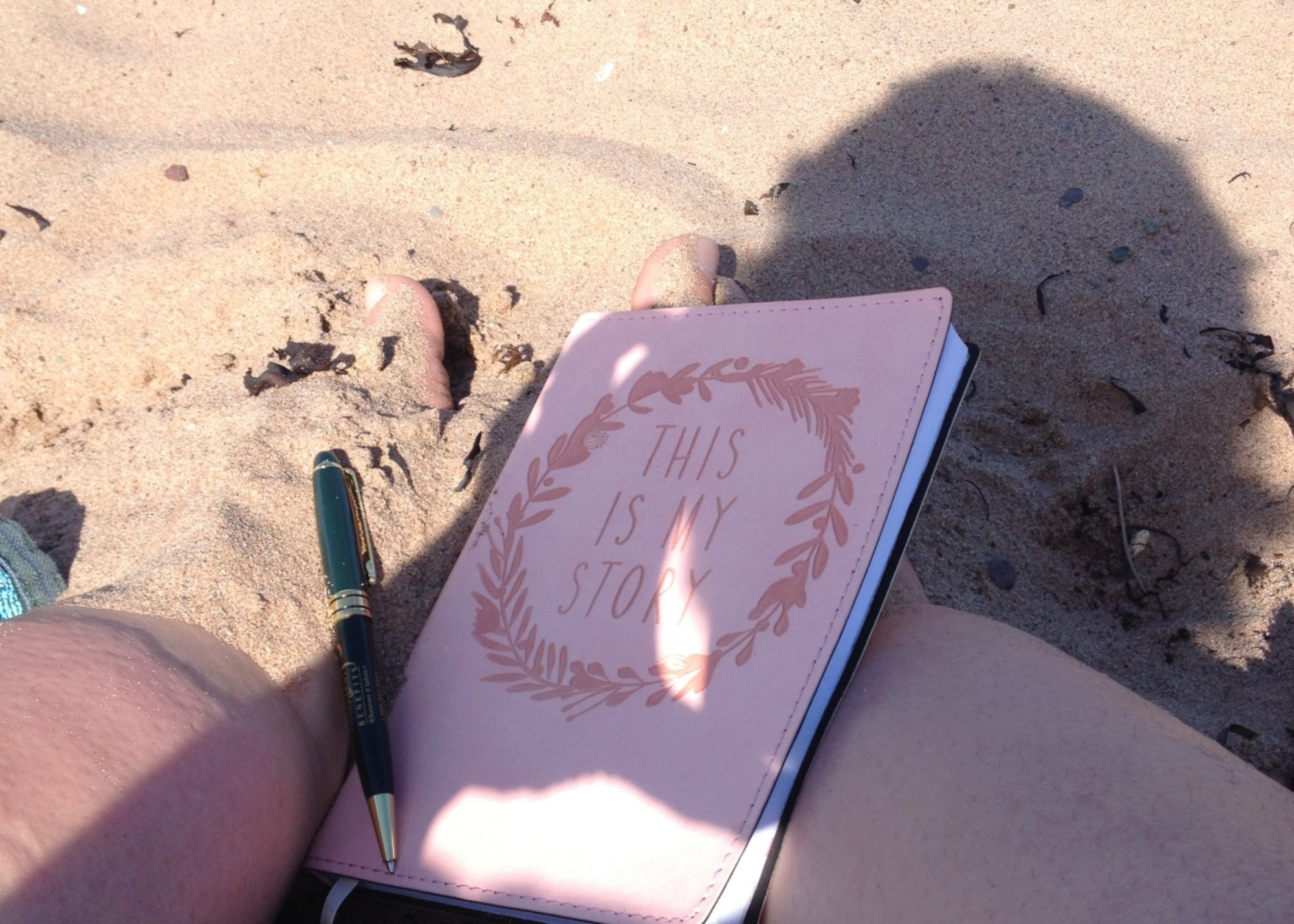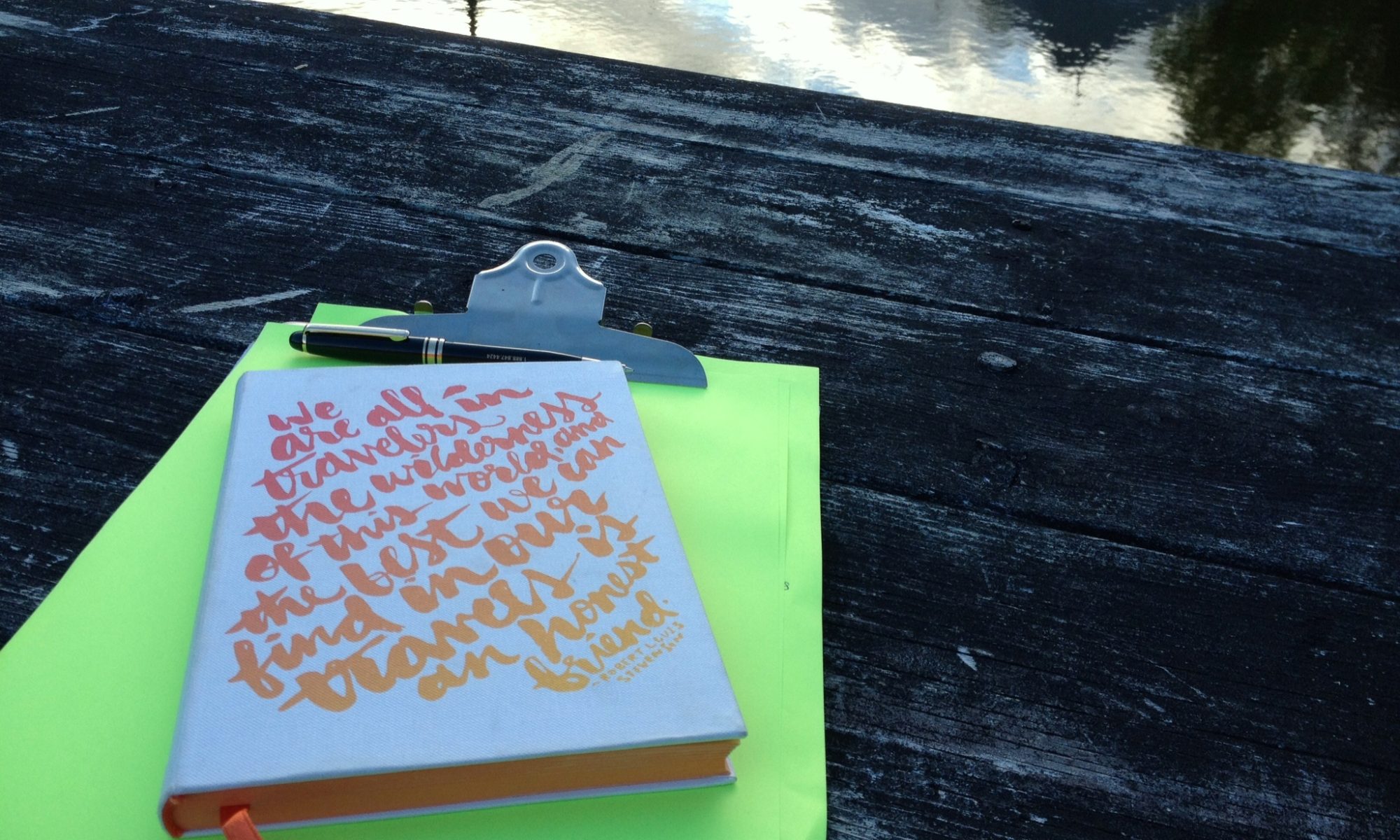November is National Novel Writing Month, or NaNoWriMo to those of us who hear the call to write 50,000 words in the 30 days of November. For the math lovers, that’s 1,667 words per day. For the goal-driven creators, it’s a playground of milestones and badges and online encouragement. Regardless of what calls you to put words to paper or screen, NaNoWriMo is a unique way to challenge yourself as a writer, build community with like-minded writers, and a simple way to invite fun into your creative process.
So what?
For me, writing has been all about the reward: client affirmation, audience praise, and good ole money. This year, the NaNoWriMo invitation landed differently. I want to write every day just because. This month’s annual initiative is giving me a playground and a reminder to keep that promise to myself. As part of that promise, I’m committed to sharing what I write in this month, lightly edited, mostly unpolished, definitely unplanned until I sit and type. I offer it up with no expectation, simply an affirmation of me doing what I promised to do, no contracts or payment or deadline required.
All the best in your writing journey!
Thanks for reading.
—
NANOWRIMO Creations 2023: November 1-8
New pieces will be added daily or as completed.
—
None of us was born to be a victim
Yet we’ve been taught it’s the safest place to be
Such rage in the double bind, friction grinding spirits for generations
And now, the world is raging, and we are ready to kill each other over the last doll at Christmas, the last tree standing in the forest, until we are
Raging against humanity itself, preferring dogs to people, and it’s ok to bomb the entire planet into death just to be right,
The last shall be first, so the Bible says
The first would rather see us all dead than let that happen
Victims, all of us
There is a way out
Reclaim who we are, the divine that is us, the world we truly want to create and not the one we were taught we wanted, deserve or are entitled to
Who wants that? Choice, our own. Responsibility, our own. Evolution, our own.
Can’t sleep and evolve at the same time. Can’t pay others to do it for us. Can’t blame anyone for any of it.
A few of us want that.
Over time, maybe a few of us can wake up a few more. And a few more. We find ourselves, then each other in the dark, and the way grows a little brighter.
—
We bought a piano for the house in 2003.
A Yamaha, my dream piano.
Not a top of the line. Our son, after all, was only 5.
Not a bottom of the line, after all, I did play a little.
My parents almost bought a Yamaha in 1974. The company was just breaking in to the North American market. Offering a great deal, yet, still a lot of money and for a id who could quit lessons in a month or a year. So, they acquired me a Willis upright grand for $100, a monster of a thing that cracked all the hallway tiles on the slow arduous journey from the truck to my bedroom. That monster got me through 12 years of lessons, and was moved twice more. Once, to the basement rec room. A second time, when my aunt bought it long after I had left home. The mover for years avoided eye contact whenever he met my mother in the grocery store. When contact was unavoidable, he’d look at her pleadingly: you don’t need that thing moved again, do you?
In 2003, I had my Yamaha, and it was the most beautiful instrument I had ever heard. Clear, crisp resonating tones that flowed from the gentlest touch on its snow-white keys, with bass notes that brought tears to your throat. I would have pitted it against any piano in the world. For nearly 20 years, it offered itself up to two young pianists and my occasional plucking.
Then I saw it. Glimpsed it, actually. Cleaning out a storage room in the church hall, I saw a hint of wood behind stacks of boxes. Stored in an alcove, buried by stuff, for God knows how long. A piano, tall and stately despite its shabby surroundings. A few blobs of hardened wax on its top. A thick layer of dust over the exposed keys. How long was it there? No one knew. A volunteer who attended school in what was now the hall remembered a nun who taught music on a piano like it. That was sixty years ago. There had been two pianos in the hall. One was thrown down the stairs, destroyed and carted away as garbage. A similar fate awaited this instrument unless another home could be found for it.
I shouted YES before I could think. There was something about this piano. What was the attraction?
I attempted to put my finger on it. One afternoon, toting a few cleaning supplies and a couple of music books, I picked my way through the storage room and stood, eyeing the wood through the stacks of old books. I shoved aside piles until the entire front was exposed. Rich wood, the colour of honeyed milk chocolate, with ornate carvings along the front and the pedestals. Stunning cabinetry, even if it couldn’t play a note. I pecked away at the hardened wax, used spray cleaner to brighten the keys, applied a bit of polish to the top and front. It looked gorgeous. How did it sound?
I glanced around. The bench or stool had long ago disappeared. I grab a plastic stacking chair, haul myself to the keyboard, touch middle C. The board was a little stiff, and no sound at first. With a little more force, middle C sang, slightly tinny yet recognizable. A quick scale. Not bad. Upper keys were remarkably in tune, given the assumed age of neglect. Then the lower notes. Resonant, crackly like a bass voice long unused, and YIKES, an entire octave in the bass section was wildly out of tune, but with promise, like a choir long neglected, rusty and enthusiastic, ready to perform with a little guidance and attention.
I tugged out my worn book of Christmas carols, the most familiar music I owned. With selective playing in the left hand, the experience was pleasant to both ear and touch. This piano had nothing wrong with it, and despite the neglect seemed willing to give its best.
I flipped down the cover over the keys. Heintzman Upright Grand.
And my new piano. That I knew.
I also knew I had no place for it. Or did I?
I was about to vacate the house with my beloved Yamaha, an evolving transition in an amicable divorce. He would take the house. I would take the cottage in a neighbouring town, a place I loved. A cottage that was 800 square feet. Where would I put a piano the size and weight of this?
A contractor confirmed my floor was solid enough for any piano. A few measurements confirmed ability to move it into the one spot where it would fit, if I removed my entire patio door. YouTube tutorials by my son and his dad had the unit open by the time the movers arrived. In it went, to stand where my couch once sat. The room shrank.
After a few days, it was hard to imagine the room without the piano. I finished polishing it. Flipped up the top, found a serial number. If my online searching is to be trusted, the number matches pianos built in 1896 at the Heintzman factory in Toronto, when the company was still under control of the original Mr. Heintzman, who came from Germany trained as a builder of pianos. One story has him studying with the man who founded Steinway in the United States.
An instrument built in 1896. That alone made it fascinating. And its ornate carpentry. And ivory keys. I shuddered at that, cringing at the knowledge of majestic elephants slaughtered for their tusks. I couldn’t change the past. Destroying the piano would have made the elephant’s death in vain, an elephant that would have been long dead by now had nature been allowed to take its course. And the keys were in surprisingly good shape for the age and care not received, nothing broken, simply a rich patina of natural shades adding to the unique aura of the instrument.
What about the sound?
A tuner confirmed my crude assessment. There was nothing wrong with this piano that couldn’t be easily fixed. A good tuning. A couple of minor repairs to hammers inside.
And finally, the test. And a realization that this fine instrument has no music holder, no ledge upon which to rest books or sheet music. How do I play without music? I pull over a kitchen chair and run through a scale. My body shivers. I pull out a song, familiar from childhood, and wedge the book best I could between the front of the cabinet and the upturned key cover.
I squint at the notes and play, hesitant. I was out of practice, desperately avoiding wrong notes, until it didn’t matter. The rich bass notes soared through the elegant cabinetry and through my soul, penetrating every cell with energy and release. Bass notes that didn’t just stick in my throat, but moved me to full on tears. If this were any other stringed instrument – a violin or cello, for example, it would be worth thousands of dollars, in its craftmanship and richness of tone. But violins and cellos are portable, easily sold to new owners and transported to new venues. Pianos are built to be stationary, to have the orchestra come to them and that way of life no longer exists. They are given away, ignored or destroyed because they no longer fit into a house, a hall, a life. And that thought moves me to tears far deeper than those evoked by the music. That such a noble instrument could be so summarily discarded because it didn’t fit. How can a life not have room for such beauty, such resonance, such music?
There is a story of a young child racing up and down a beach, tossing starfish and starfish into the water. His grandfather shakes his head, saying ‘why bother? You can’t possibly save them all.’ The boy looks at his grandfather, shrugs and picks up a starfish, ‘Maybe not, but I can save this one.’ I grieved for the piano tossed down the stairs, for all pianos thrown into dumpsters and left to the weather by people with no room for them, no need for them, no awareness of the new life that awaited in keeping or repurposing, rather than demolishing. Such short-sightedness, such frenzy at needing to clean up and clean out. What kind of world does that create for us?
I recently spent some time back in my former house, and I played my beloved Yamaha. In tune and obliging, technically correct yet cool, The notes were shrill, at times hurting my ears; the bass notes still rich, lacking the warm richness of my Heintzman with its hand-crafted attention not only to detail, but the craft itself. I finished the piece no longer in love with my Yamaha, grateful to it for its service, an evolution not unlike that of the marriage into which it was bought, a marriage now evolved and cooled to gratitude and respect. It was a homecoming on many levels when I returned to my cottage, my piano, my life. I sit down, wedge the sheet music into a spot where I can read most of it, until the breeze from my heater flips it downward and onto the keys. Again. And again, as if telling me Not Happening …
It’s a piece I’ve played for decades. Never from memory. I retrieve the sheets and set them aside, breathe, and play not what I see, but what I know. Parts flow into parts that only one hand moves into parts of complete blankness. I keep going until I reach the end. What came out was gorgeous. What didn’t come out is waiting for another invitation. It becomes my daily practice, playing each night from memory until one night, the entire piece flows, start to finish, my piano resonating richly, my body resonating to match, tears flowing as the notes. The Homecoming, by Canadian composer Hagood Hardy. My piano was home. And now, so was I.



This evoked a lot of memory, Jennifer. I grew up with a Heintzman upright grand which had also been a player piano in its day. A magnificent instrument where I learned to play. And, later, as an adult, a brand new Yamaha upon which my children learned to play. Your reference to The Homecoming by Hagood Hardy rounded out my experience of learning to play… music in hand, yet so much by ear… such a visceral experience of resonance, richness and tone.
Thank you. This is a great read.
I love this story and the insight you provide of the pianos who don’t find homes, who are ignored or destroyed. To find such beauty and sense of home from playing your Heintzman gives me, the reader, such joy!